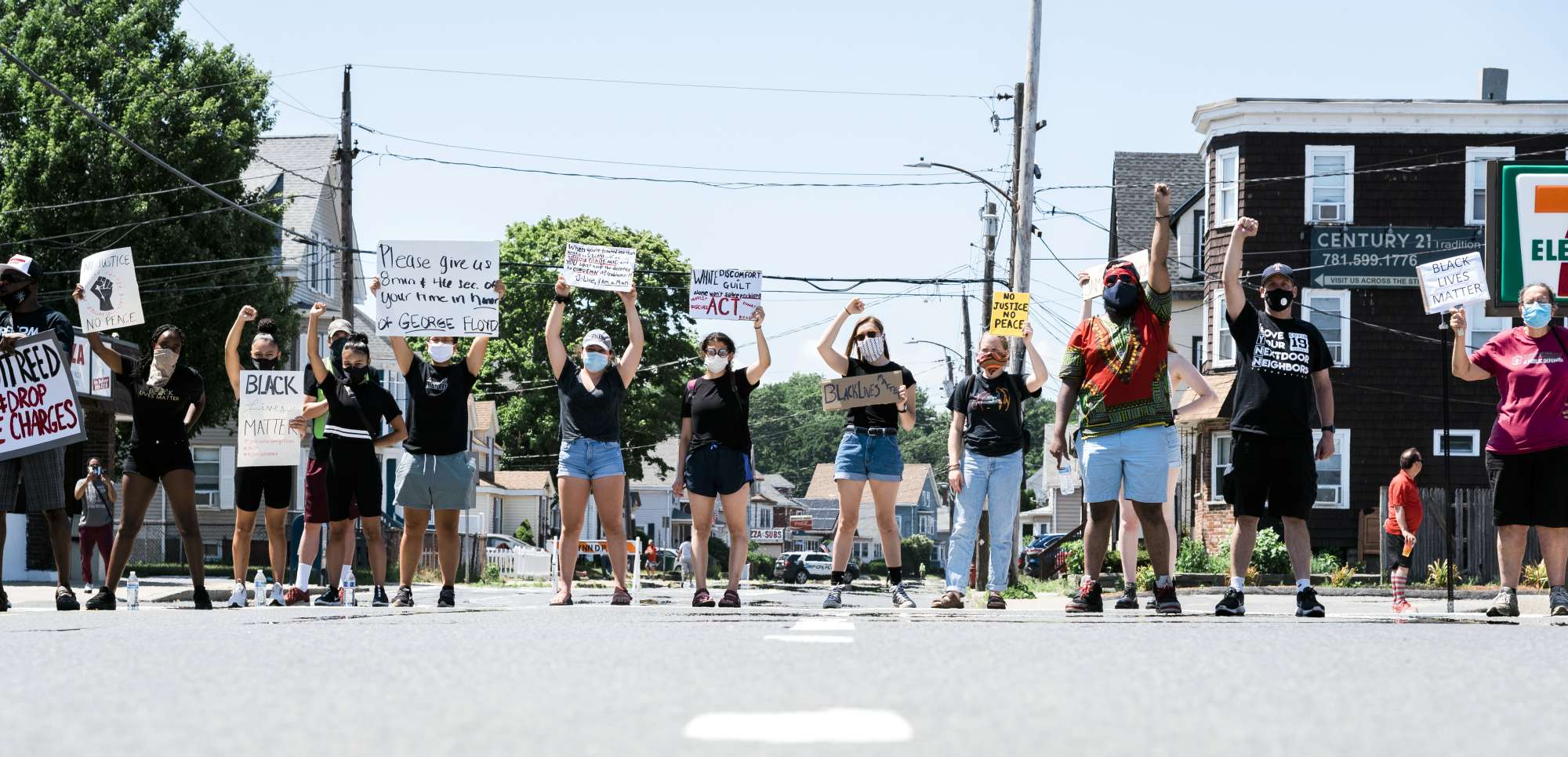LYNN — More than 150 people spent their Fourth of July holiday at a marathon three-hour protest against what they called police brutality and systemic racism that stretched from Manning Field to Wyoma Square.
The multi-faceted demonstration on Saturday afternoon was highlighted by the organizers’ demands for police reform in the city and their urging of those in attendance to get out and vote in future elections to bring about change.
“There’s too many of us dying,” said Michelle “La Poetica” Richardson, a community activist with Prevent the Cycle. “Black lives matter because we’re the only ones hanging from trees. We have to break the cycle.
“We have to go out in hordes and vote. If your elected official is not doing their job, vote them out. Either you’re for what’s right or you’re wrong.”
“This is a movement,” said Darrell Murkison, a local activist with Essex County Community Organization (ECCO). “It’s not just a moment in time. It’s from deep down in your soul, knowing what’s right and what’s wrong.”
Murkison told those gathered in the Manning Field parking lot, where the demonstration began, that they were in for a fight in trying to bring about change.
“They are trying to wear us down,” said Murkison, who compared efforts to affect change to running a marathon. “We want to see a change and we want to see that change happen now and we have the power to do it.”
Richardson and Murkison were just two of the multiple speakers who gave remarks at Manning Field, the staging area for the day’s protest.
Other speakers included Neil T. Whittredge and Anthony Coleman, the two community activists who organized the demonstration; Coleman’s mother, Donna McKenzie, who spoke about her experiences with racial injustice over her lifetime; Victor White, one of three black men who alleges he was unlawfully arrested by Lynn Police on June 15; and “Harlem 125,” who recited a poem about different scenarios that have resulted in black men getting shot by police.
“We’ve got multiple pandemics we’re dealing with, not just COVID, but systemic racism,” Harlem 125 said.
Richardson also played a pre-recorded message from Ricky McGee, a Massachusetts inmate who claims he was wrongfully convicted for a 1997 convenience store robbery and murder. McGee’s conviction was upheld by the state’s Supreme Judicial Court in 2014, according to the Suffolk County District Attorney’s office.
Following the remarks, the crowd marched toward and occupied Wyoma Square. Protesters were instructed to gather in a circle in the street near Rolly’s Tavern, where they remained for nearly an hour. All intersections surrounding the gathering were blocked off to traffic by Lynn Police.
The police department had advised motorists earlier in the day to seek alternate routes at around 1:30 p.m., when protestors were expected to arrive in the area.
At Wyoma Square, Whittredge read off their list of demands for the Lynn Police Department, which included the formation of an independent civilian review board that would be involved in reviewing cases involving alleged police misconduct and unlawful arrests, outlawing chokeholds as a use of force, requiring body cameras and enforcing legal consequences for police officers who turn them off, and removing police officers from schools.
“We’ve got a lot of work to do,” said Whittredge, who has noted their plan is to submit that petition to the city in order to push for a public hearing.
After their demands were listed, Coleman recited Frederick Douglass’ 1852 speech: “What to the Slave is the Fourth of July?” In the speech, Douglass asserts: “This Fourth of July is yours, not mine. You may rejoice, I must mourn.”
The “Occupy Wyoma Square” portion of the protest was capped with protesters taking a knee, sitting down or standing for eight minutes and 46 seconds in silent reflection of George Floyd’s death at the hands of a white Minneapolis police officer.
“With these demands, we ask a system that is corrupt and broken to take their knees off our necks,” said Richardson. “Enough is enough.”

